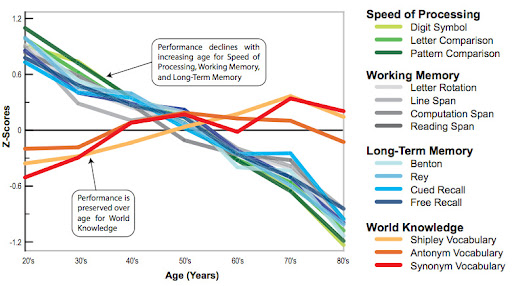http://library.nu/do...ogy Series, 49)
Doesn't look very hopeful right now though - there is pretty much NO relationship between any of the variables they measured and cognitive decline with age. That being said, they COMPLETELY neglect variables like blood glucose and insulin, and this may be where their analysis is flawed. Of course you can have high blood glucose levels and be in "good health" up to your 80s. That still isn't going to prevent the glucose from destroying your brain from inside.
Integrity of myelin can be assessed by the presence of abnormalities
known as white matter hyperintensities, which are abnormal formations of
myelin that are assumed to reflect deterioration of myelination. Diffusion
tension imaging (DTI) is a special type of magnetic resonance scan that can
detect the orientation of water molecules. When the myelinated fibers are
intact, water molecule motion is primarily in the direction of the fiber tract,
but as the fiber deteriorates the orientations of the molecules become more
diffuse. Increased age has been found to be associated both with a greater
number of white matter hyperintensities and with DTI evidence of myelin
degradation. These measures have also been linked to a variety of cognitive
variables, and thus changes in myelin are plausible as a potential mediator or
moderator of age-related declines in cognitive functioning.
==
http://www.quora.com...ecline-with-age
^Just wrote an answer above - feel free to suggest improvements. I'm just trying to make sense of all this data right now
Edited by InquilineKea, 11 June 2011 - 04:58 AM.












































